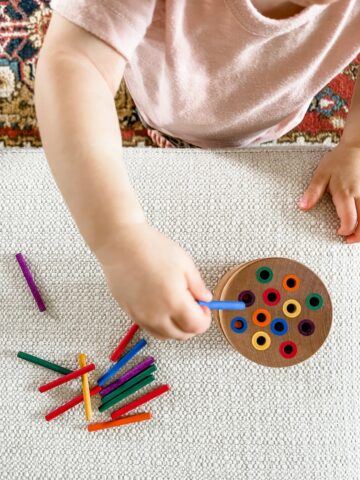
Toddlers are natural explorers, and play is the perfect way for them to learn about the world around them. In this article, we’ll explore the benefits of play-based learning for toddlers, from promoting creativity to improving language and social skills. We’ll also offer some tips for parents to incorporate play-based learning into their child’s daily routine.
Play-based learning has become increasingly popular among parents and educators alike and for good reason.
Not only does play-based learning make education more enjoyable and engaging for toddlers, but it has also been shown to have numerous cognitive and social benefits.
In this article, we’ll take a closer look at what play-based learning is, why it’s important for toddlers, and how it can benefit them in the long run
What is Play-Based Learning?
Play-based learning is an approach to education that involves structured play activities to promote children’s development in various domains such as cognitive, social, emotional, and physical. It is based on the belief that children learn best when they are engaged in hands-on, experiential learning activities that are both enjoyable and challenging.
Why is Play-Based Learning Important for Toddlers?
Toddlers are at a stage in their development where they are constantly exploring and discovering the world around them. Play-based learning provides them with opportunities to develop skills in areas such as problem-solving, critical thinking, creativity, communication, and social interaction. It also helps toddlers to build self-confidence and self-esteem as they learn through trial and error and experience success in their play activities.
Benefits of Play-Based Learning for Toddlers
- Enhances Cognitive Development: Play-based learning has been shown to enhance cognitive development in areas such as language, memory, attention, and executive function. For example, playing with blocks can help toddlers to develop spatial awareness, counting, and problem-solving skills.
- Fosters Social and Emotional Development: Play-based learning also helps toddlers to develop social and emotional skills such as empathy, cooperation, and self-regulation. Role-playing, for example, can help toddlers to develop social skills and emotional intelligence as they learn to navigate social situations and regulate their own emotions.
- Promotes Physical Development: Play-based learning also promotes physical development by providing opportunities for toddlers to develop their gross and fine motor skills. Activities such as running, jumping, climbing, and drawing can help toddlers to build strength, coordination, and dexterity.
Examples of Play-Based Learning Activities for Toddlers
- Building with blocks
- Pretend play (e.g. playing house, grocery store, doctor)
- Drawing and painting
- Singing and dancing
- Playing with puzzles
- Reading and storytelling
- Outdoor play (e.g. running, jumping, climbing)
Conclusion
Play-based learning is a valuable approach to education for toddlers that can have numerous cognitive, social, emotional, and physical benefits. By providing toddlers with engaging and challenging play activities, parents and educators can help them to develop important skills that will serve them well throughout their lives.
So, the next time you’re wondering how to engage your toddler in learning, remember that play is a powerful tool for promoting their growth and development








